Reading the Chunksters discussion
Archive 2015: Literary Readathon
>
Midnight's Children: Discussion Schedule, Background & Resources
date newest »
newest »
 newest »
newest »
 Background Info
Background InfoThe time period we are about to embark upon in Midnight's Children, the transition from British rule pre to post (1915-1977) independence (1947), I thought it would be helpful to better understand the political climate of the era and the plight of the people by posting some links and images preliminarily, getting our hands and feet wet before discussions begin...
British Occupied India/Pre-Partition



Post Independence India

As you can see, instead of the desired outcome which was to gain independence from Britain as a "unified" India, it was separated...Thus the birth of Pakistan and Bangladesh.
I will post more in the threads as we progress in our reading to better facilitate the discussions.
 Resources
ResourcesAlthough a comprehensive knowledge of the area and its language is not necessary, a basic understanding might heighten the reading experience. Language plays an important part in "Midnight's Children," as it encompasses the varying dialects from region to region all stemming from Hindi (primary language spoken). I am including a link here clarifying many of the foreign terms and vocabulary.
Bombay/Mumbai
Bombay is a central point in our novel and a very important city to India on a plethora of levels (industry, commerce, society, politics). This being said, a history of this city and its involvement in the birthing of a new nation can be found here.
 The reasoning behind choosing August 15, 1947, as the date for India's Independence...
The reasoning behind choosing August 15, 1947, as the date for India's Independence...Why 1947
The awakening of masses by Gandhi and the activities of Bose behind the scenes (of strengthening Indian National Army) which had intensified during 1940s were already a cause of concern for the British. By the time the World War II had come to an end in 1945, the British were financially weak (sources indicate they were in the verge of bankruptcy) and were struggling to rule their own country, let alone their colonies. The victory of Labour party in the Britain elections of 1945 was received very well by our freedom fighters because the Labour party had promised to work on granting independence to English colonies including India.

Lord Wavell initiated talks with Indian leaders for Indian Independence and despite several disagreements and disruptions, it was gaining momentum. In Feb 1947, Lord Mountbatten was appointed as the last viceroy of India to oversee the transfer of power.
Lord Mountbatten presiding over the “June 3″ plan
The plan initially was to transfer power from Britain to India by June 1948. Immediately after assuming power in Feb 1947, Lord Mountbatten had begun series of talks with Indian leaders for a consensus. But things were not so simple especially due to conflicts between Jinnah & Nehru on the matter of partition. Jinnah’s demand for a separate nation had instigated large scale communal disturbances across India and upon passing of each day, situation was going out of control. This was certainly not something expected by Mountbatten and hence such circumstances forced him to prepone the date of independence by almost an year, from 1948 to 1947. It was decided in the meeting (related to independence & partition) on June 3, 1947 which was aptly titled “June 3rd Mountbatten Plan"
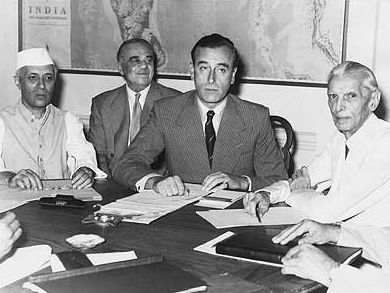
Why the 15th?
It was Lord Mountbatten who had personally decided the date of Aug 15 because he had considered that date to be “very lucky” for his career. During the World War II, it was on Aug 15, 1945 (Japan timezone) that the Japanese Army had surrendered before him (Lord Mountbatten was the commander of the allied forces).
Why midnight
When the date of independence was decided in “June 3 plan” and announced to public, there was an outrage among astrologers across the country because 15-Aug-1947 was an “unfortunate & unholy” date according to astrological calculations. Alternative dates were suggested but Lord Mountbatten was adamant on Aug 15 (since it was his lucky date). As a workaround, the astrologers suggested the midnight hour between Aug 14 and 15 due to the simple reason that the day according to English starts at 12 AM, but according to Hindu calendar, starts at sunrise.
A film from Independence Day can be seen here . Mountbatten, Nehru, Jinna, are all visible.
All info from gurprasad.net
 I have to shake my head as right up to the last moment of being in charge, Mountbatten insisted that India's independence would happen on his lucky day... a completely personal choice that ignored the politics and cultural traditions of India. It's an example of white patriarchal presumed entitlement attitude that boggles the mind.
I have to shake my head as right up to the last moment of being in charge, Mountbatten insisted that India's independence would happen on his lucky day... a completely personal choice that ignored the politics and cultural traditions of India. It's an example of white patriarchal presumed entitlement attitude that boggles the mind.
 Janice George (JG) wrote: "I have to shake my head as right up to the last moment of being in charge, Mountbatten insisted that India's independence would happen on his lucky day... a completely personal choice that ignored ..."
Janice George (JG) wrote: "I have to shake my head as right up to the last moment of being in charge, Mountbatten insisted that India's independence would happen on his lucky day... a completely personal choice that ignored ..."Oh, he didn't give a damn, and it was obvious. India knew it...It was just a bad situation all around.
 I seem to be having a hard time keeping up. I wanted to let you know that I'm still reading, I just seem to be having trouble catching up. Sorry.
I seem to be having a hard time keeping up. I wanted to let you know that I'm still reading, I just seem to be having trouble catching up. Sorry.
 Book 2
Book 2
Refugee Migration of Muslims, Sikhs and Hindu's after Independence

Info on the Indian Pakistani War Part I, War of 1965, can be found here (there may be a problem with this link, it may take to the image already posted; if so, I apologize. Trying to fix it)
Here is the direct link for you to access, if there is a problem...https://history.state.gov/milestones/...
 Book 3
Book 3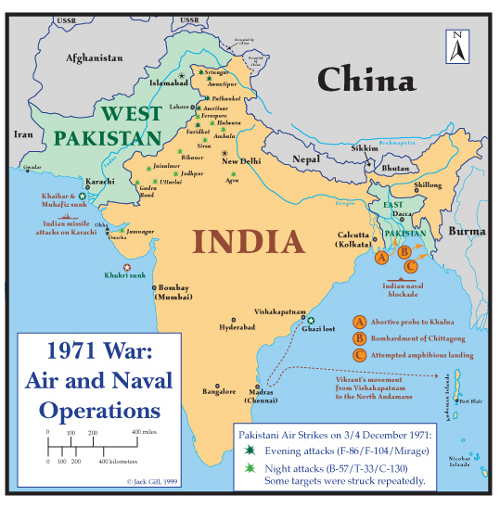
Info on the Indian Pakistani War Part II, War of 1971, can be found here
I thought this was an interesting article on some military oversights regarding the war.

Involvement of the US, Russia and China...
An article debunking some public fallacy regarding the war of 1971 by a retired Chief Justice of the Delhi High Court, was the Chairperson of the Prime Minister’s high-level Committee on the Status of Muslims and the UN Specialist on Housing.
Key Players in this War and links to their wiki pages
"Zulfikar Ali Bhutto", Leader of the Pakistani People's Party, West Pakistan
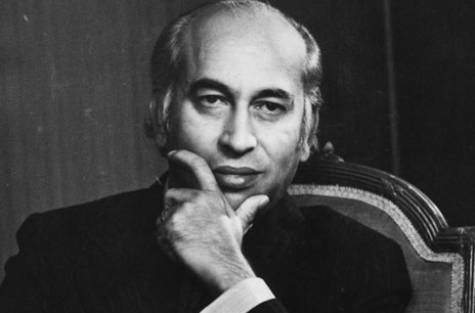
"Sheikh Mujibur Rhaman", President of Bangladesh, a student leader in the Awami League
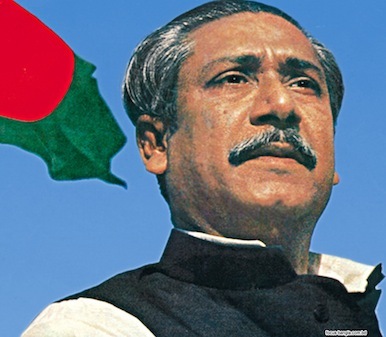
"Ayub Khan" , 2nd President of Pakistan (1958-1969)
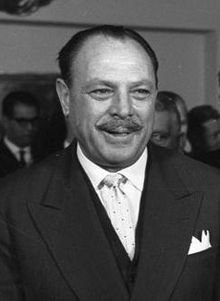
"General Yahya Khan", 3rd President of Pakistan (1969-1971)

General A.A.K. Niazi, Leader of the East Pakistani Military War Efforts
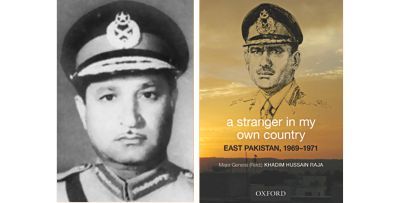
"Indira Ghandi", no relation to the Mahatma, but the daughter of Jawaharlal Nehru (I'm sure Rushdie will be happy I mentioned this), Prime Minister of India (1966-1984)
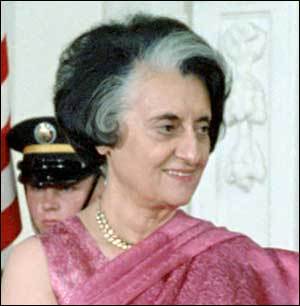
Other's Mentioned
"General Sam Manekshaw in the Novel"

I'll post more in a few...
 Very interesting, Ami -- thank you!
Very interesting, Ami -- thank you!I look at East and West Pakistan, with huge India sandwiched between them, and I have to shake my head at our foolishness as humans... all this because we keep wanting to control each other's behavior, and because we can't just live and let live.
 Janice George (JG) wrote: "Very interesting, Ami -- thank you!
Janice George (JG) wrote: "Very interesting, Ami -- thank you!I look at East and West Pakistan, with huge India sandwiched between them, and I have to shake my head at our foolishness as humans... all this because we keep ..."
Oh, you're very welcome...I hope it helps put things in perspective.
Your post triggered the recollection of a great quote we read in Book 3, the preliminary section, when Saleem describes Pakistan, India and the secession of Bangladesh ...In those days, the country's East and West Wings were separated by the unbridgeable land-mass of India; but past and present, too, are divided by an unbridgeable gulf. Religion was the glue of Pakistan, holding the halves together; just as consciousness, the awareness of oneself as a homogeneous entity in time, a blend of past and present, is the glue of personality, holding together our then and our now (404).
I never thought to look at India as an entity with broken wings until now.
 Thank you for posting all this information, Ami. I have to admit that for a good part of the last few chapters I have been struggling to understand all of the political moves, how and why the wars have started, and the various border changes. I really should have done much more reading up on the background of India than I have done so far - I think my reading would have gone much more smoothly. I was completely confused on the East and West Pakistans, not realizing that East Pakistan then turned into Bangladesh. And the top map in message 9 is really helpful in visualizing the migration of the people within the different religions.
Thank you for posting all this information, Ami. I have to admit that for a good part of the last few chapters I have been struggling to understand all of the political moves, how and why the wars have started, and the various border changes. I really should have done much more reading up on the background of India than I have done so far - I think my reading would have gone much more smoothly. I was completely confused on the East and West Pakistans, not realizing that East Pakistan then turned into Bangladesh. And the top map in message 9 is really helpful in visualizing the migration of the people within the different religions.
 Linda wrote: "Thank you for posting all this information, Ami. I have to admit that for a good part of the last few chapters I have been struggling to understand all of the political moves, how and why the wars..."
Linda wrote: "Thank you for posting all this information, Ami. I have to admit that for a good part of the last few chapters I have been struggling to understand all of the political moves, how and why the wars..."I understand. In all honesty, I'm wondering how I'm going to approach posting for this week's reading since so much has happened, and for however many characters we've lost in Books 1 & 2, we've gained in Book 3...Wish me luck :)
You're most welcome...We needed it.
 Information on Indira Gandhi's "Emergency" can be found here.
Information on Indira Gandhi's "Emergency" can be found here.Sanjay Gandhi, son of Indira Gandhi

Mother and Son

 Ami wrote: "Your post triggered the recollection of a great quote we read in Book 3, the preliminary section, when Saleem describes Pakistan, India and the secession of Bangladesh ...In those days, the country's East and West Wings were separated by the unbridgeable land-mass of India; but past and present, too, are divided by an unbridgeable gulf. Religion was the glue of Pakistan, holding the halves together; just as consciousness, the awareness of oneself as a homogeneous entity in time, a blend of past and present, is the glue of personality, holding together our then and our now (404)..."
Ami wrote: "Your post triggered the recollection of a great quote we read in Book 3, the preliminary section, when Saleem describes Pakistan, India and the secession of Bangladesh ...In those days, the country's East and West Wings were separated by the unbridgeable land-mass of India; but past and present, too, are divided by an unbridgeable gulf. Religion was the glue of Pakistan, holding the halves together; just as consciousness, the awareness of oneself as a homogeneous entity in time, a blend of past and present, is the glue of personality, holding together our then and our now (404)..."I hilited that paragraph also, especially because I hadn't read it yet when I made my comment. I think Saleem is burrowing into my mind :)
 Book 3, Week 8
Book 3, Week 8Moraji Desai
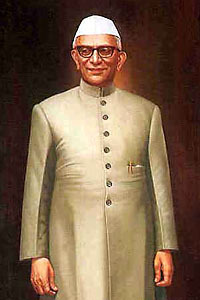
J.P. Narayan (Jayaprakash Narayan)
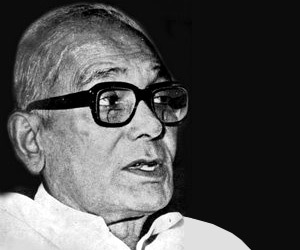
Political Parties and Ideologies Referenced
Janata Morcha (The People's Front)
Swatantra Party
Ananda Marg(a)
Other Historical Aspects
Mundrha Scandal
 Ami wrote: "Book 3
Ami wrote: "Book 3Info on the Indian Pakistani War Part II, War of 1971, can be found here
I thought this was an interesting article on some military oversights regarding the war.
Involvement of the US..."
General Sam Manekshaw looks so smug... I kind of want to wipe that smirk off his face :)
 Janice George (JG) wrote: "Ami wrote: "Book 3
Janice George (JG) wrote: "Ami wrote: "Book 3Info on the Indian Pakistani War Part II, War of 1971, can be found here
I thought this was an interesting article on some military oversights regarding the war.
Involveme..."
I thought that of Sanjay Gandhi... You know, there was an incident at a gathering of sorts where he was witnessed to have smacked his mother six times at this party. Once the news hit the streets and gossip infiltrated the public, journalists who were at the party were immediately asked to leave the country... I mean, they were escorted to the airports by gunmen from the government. Indira, essentially censored reporters from writing about the episode. There's an article online, a q & a, with one of the journalists who was asked to leave India... It's an interesting article.
 Ami wrote: "I thought that of Sanjay Gandhi... You know, there was an incident at a gathering of sorts where he was witnessed to have smacked his mother six times at this party. Once the news hit the streets and gossip infiltrated the public, journalists who were at the party were immediately asked to leave the country... I mean, they were escorted to the airports by gunmen from the government. Indira, essentially censored reporters from writing about the episode. There's an article online, a q & a, with one of the journalists who was asked to leave India... It's an interesting article..."
Ami wrote: "I thought that of Sanjay Gandhi... You know, there was an incident at a gathering of sorts where he was witnessed to have smacked his mother six times at this party. Once the news hit the streets and gossip infiltrated the public, journalists who were at the party were immediately asked to leave the country... I mean, they were escorted to the airports by gunmen from the government. Indira, essentially censored reporters from writing about the episode. There's an article online, a q & a, with one of the journalists who was asked to leave India... It's an interesting article..."Yes, Sanjay's smirk is more of a sneer, which is worse. That's a terrible story about the whole family. People in power behaving badly... it seems to come with the territory.




This schedule reflects the dates on which discussions will commence, please read and post accordingly...There will be no need for spoiler tags.
Book One
Week 1 6/13: Pages 3-68 ...The Perforated Sheet-Under the Carpet
Week 2 6/20: Pages 69-133 ...A Public Announcement- Tick, Tock
Book Two
Week 3 6/27 Pages: 137-205 ...The Fisherman's Pointing...-All-India Radio
Week 4 7/04 Pages: 206-271 ...Love in Bombay-Alpha and Omega
Week 5 7/11 Pages: 272-336 ...The Kolynos Kid-Movements Performed...
Week 6 7/18 Pages: 337-393 ...Drainage and the Desert-How Saleem...
Book Three
Week 7 7/25 Pages: 397-464 ...The Buddha-The Shadow of the Mosque
Week 8 8/01 Pages: 465-533 ...A Wedding-Abracadabra
*I reserve the right to speed up, or slow down the schedule, if need be; acting in accordance with those (consistent contributors to the discussion) who express the desire to do so.